SignalRGB Minecraft Integration Tutorial
In this guide you will learn how to make your RGB gaming setup react to your Minecraft gameplay exactly like in the video shown below.
You can also view this page which lists all of the effects you should see with this integration.
Step 1. Install SignalRGB
The application that you will be using for the game integration is called SignalRGB, it controls thousands of products from hundreds of different brands. Follow this guide to ensure you configure the application correctly.
Step 2. Game Settings
Go into your Minecraft video settings and make sure that 'GUI Scale' is set to Auto and that 'Fullscreen' is ON. If applicable disable any color filters such as color blind mode.
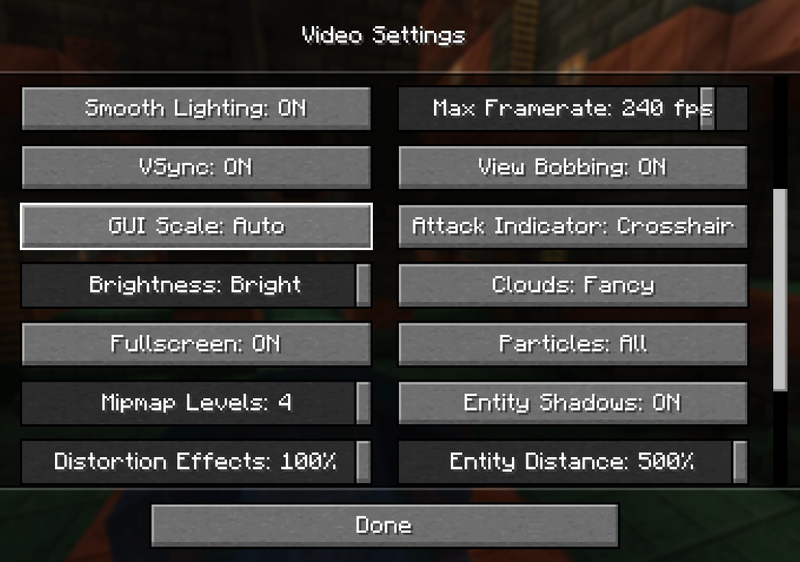
Step 3. Disable Game Interface Mods
If you have any mods installed that modify the game interface then you need to disable them as they will prevent the game integration from functioning correctly. You can still keep any mods including shaders that do not change the game interface.
Step 4. Windows Display Settings
In Windows go to System > Display and make sure your resolution is set to its normal monitor resolution, if it's a 3440x1440 monitor then it needs to be set to that resolution in the 'Display resolution' dropdown menu.
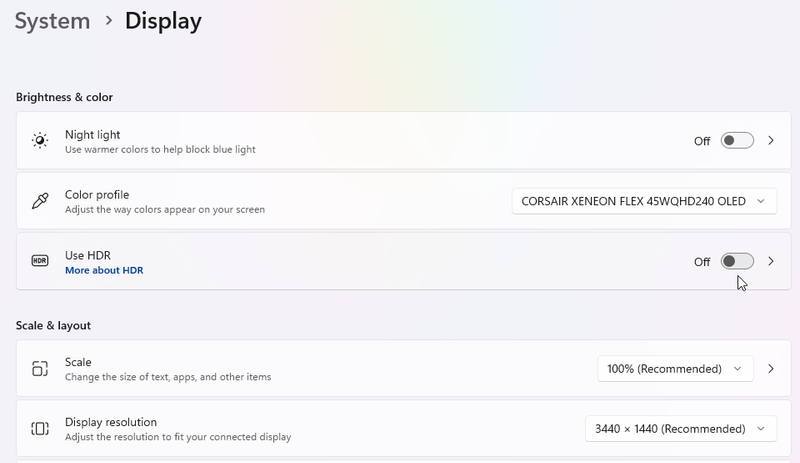
Step 5. SignalRGB Settings
If you have multiple displays then go to 'Video Settings' in SignalRGB and make sure that the monitor you'll be playing the game on is selected in the 'Monitor Select' dropdown.
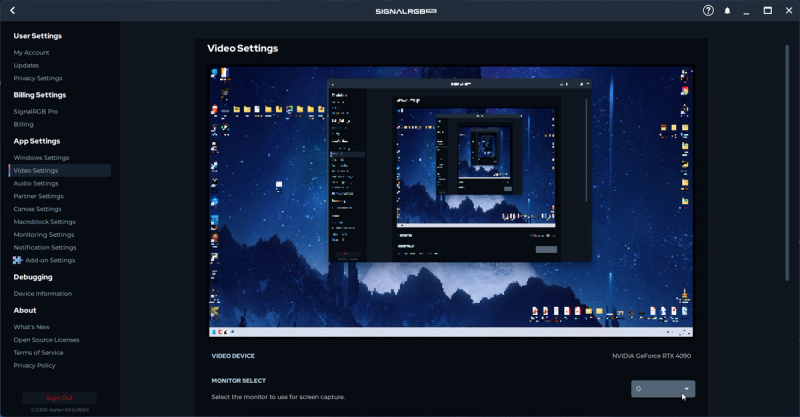
Step 6. Install Minecraft integration
Use the search bar in the top right corner of the SignalRGB dashboard and type 'Minecraft', then hover over Minecraft and click 'Get'.
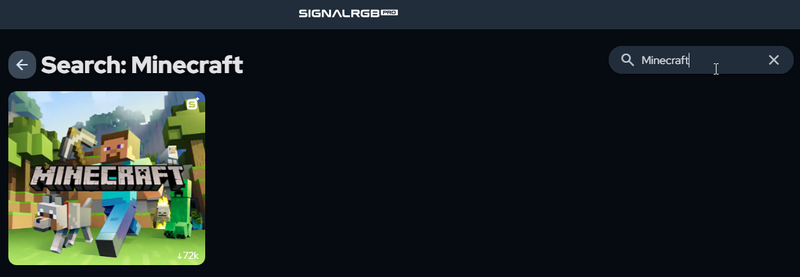

Now you can go to 'Customize' on the left side of the window and you will see a bunch of settings associated with the Minecraft integration. By default, every integration starts with screen ambience as the background and it will look like the image below.
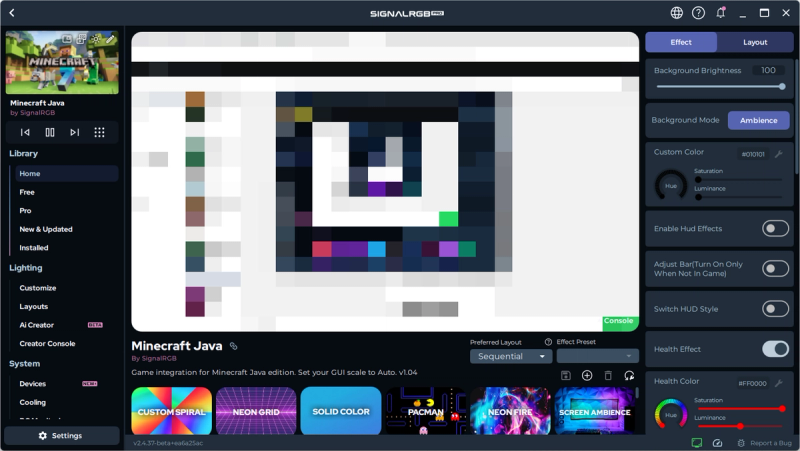
You can select a different background mode if you don't want to use screen ambience or even make the background brightness 0 if you don't want to have a background at all.

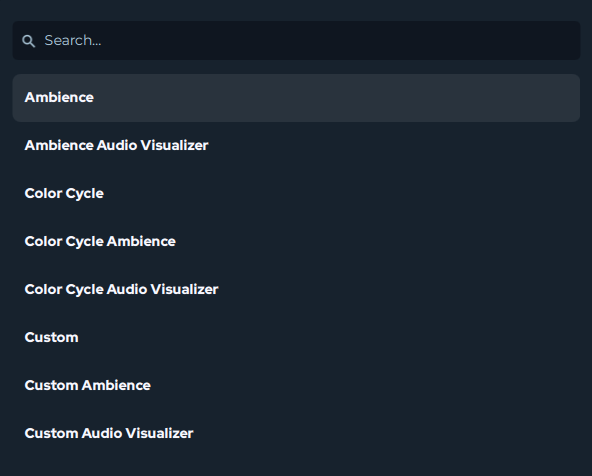
You can enable and disable which game effects will display on top of the background.
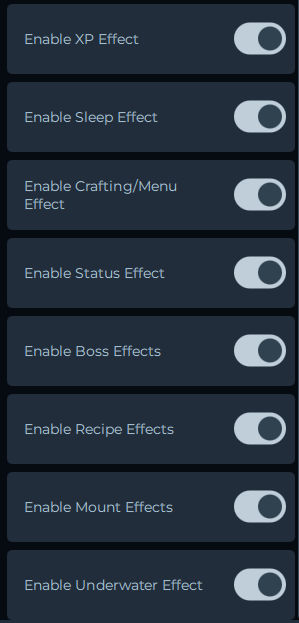
At this point if you are not interested in configuring the health and hunger bars in Step 7 then disable the toggle labeled 'Enable Hud Effects'. You can now minimize SignalRGB and play Minecraft, your RGB setup should start reacting to your gameplay.
Step 7. Adjustable Health and Hunger Bar
The SignalRGB Minecraft integration allows you to display your health bar and hunger bar anywhere on your device(s). Make sure the toggle labeled 'Enable Hud Effects' is on.

If you want to properly utilize this feature then you need to position the health and hunger bars to fit on your device(s). Enable the 'Adjust Bar' toggle which will make the bars visible and then set 'Screen Ambience Brightness' to 0 so that only the bars are on the screen.


Your effect canvas should look like the image below where the red bar is health and the orange bar is hunger.
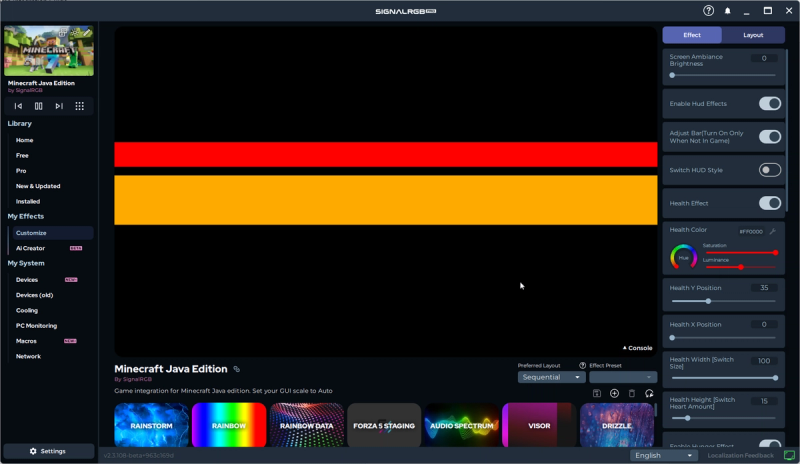
There are many settings to configure the health and hunger bar. You can adjust the bar colors, the x and y positions of the bars, and the height and width of the bars.

You may need to create a new device layout if you want the bars only on specific devices. In the image below, the keyboard is positioned in the bottom left corner while the rest of the devices are positioned normally. This way the bars can be positioned over the keyboard without overlapping onto other devices. Only the keyboard will display the health and hunger bar while the rest of the devices will be displaying the other effects.
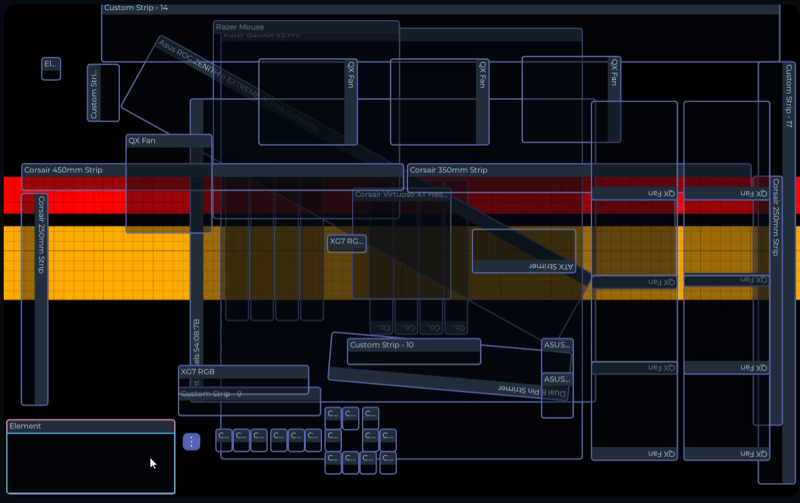
Now you can adjust the x and y positions, and the height and width of the bars until they are in the desired location as shown in the example video below.
You can go between the effects tab and the layouts tab to verify the positioning. In the image below it shows that the health bar is covering the top half of the keyboard and the hunger bar is covering the bottom half of the keyboard.
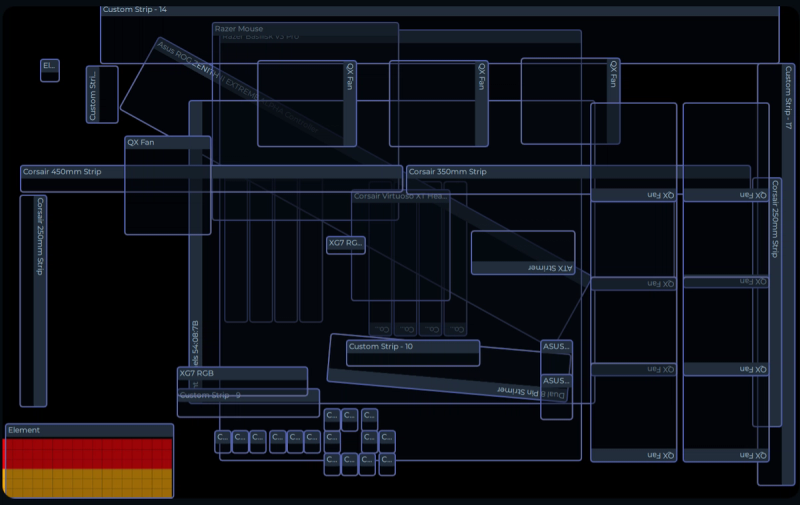
You can also verify bar positioning by looking at your device which should match the layout.
Remember to disable the 'Adjust Bar' toggle once you are done positioning the bars.
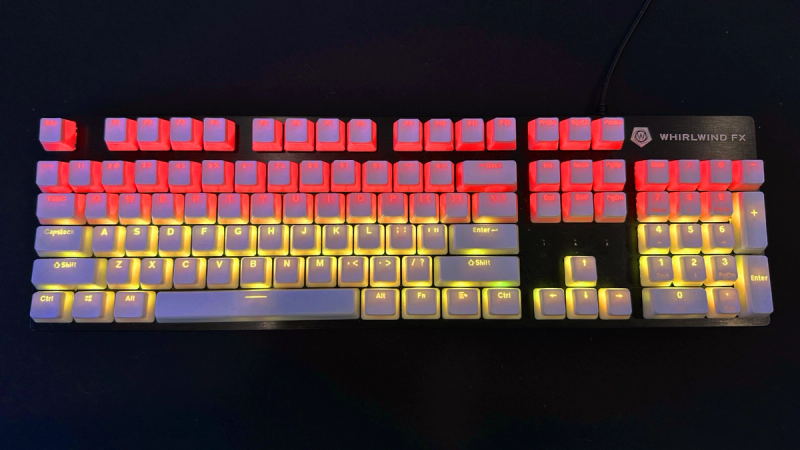
The video below is the finished result where the keyboard is displaying the health and hunger bars and the surrounding devices are displaying other effects.
Optionally, you can change the health bar to look like hearts and the hunger bar to look like food if you toggle "Switch HUD Style" on. This will require repositioning and scaling of the bars once again to fit correctly on the devices. This optional HUD style is intended for devices such as Yeelight Cubes or Twinkly Panels and it will not look good on keyboards.

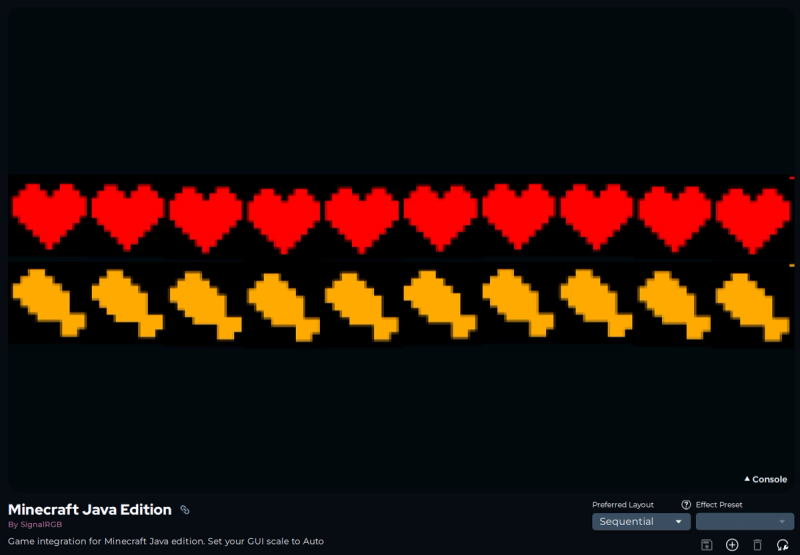
The example below is with the hearts positioned over Yeelight Cubes.
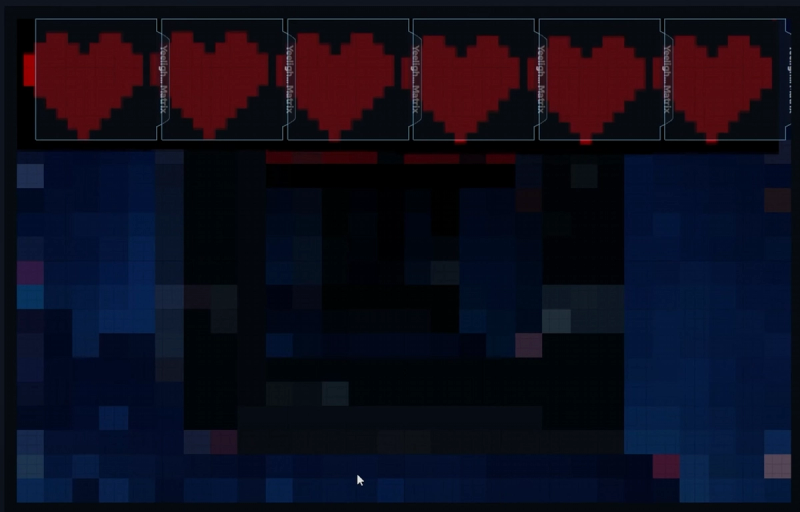
This is the end of the tutorial. Send an email to [email protected] if you are experiencing issues with the integration.